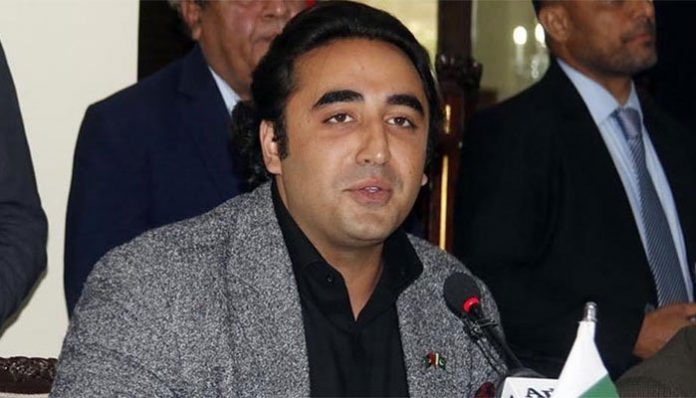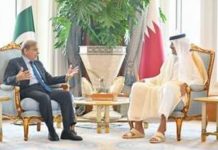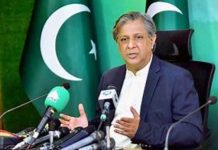ISLAMABAD: Foreign Minister Bilawal Bhutto-Zardari Thursday revealed a PTI minister had threatened him with the imposition of martial law a night before the no-confidence motion against ex-prime minister Imran Khan was passed.
In his address to the National Assembly, Bilawal told the house that the PTI minister asked him to either accept early elections or martial law would be imposed in the country.
The foreign minister said that despite PTI’s repeated attempts to defeat the no-confidence motion against the former premier, their bids were foiled and the no-trust vote was successful.
Bilawal then demanded an investigation into the events leading up to and post the no-confidence motion that led to former prime minister Imran Khan’s ouster.
Ex-deputy speaker Qasim Suri had termed the no-trust motion against Khan “unconstitutional” and dismissed it on April 3, and following this, the then-prime minister advised President Arif Alvi to dissolve the assemblies and he followed suit.
But the then-Opposition filed a plea in the Supreme Court seeking the nullification of the government’s move. The top court then on April 7, declared the government’s decision to dissolve the assembly and Suri’s ruling against the constitution.
The SC had asked to hold the voting on the no-confidence motion on April 9, but Khan had the speaker prolong the session. But near midnight, the speaker resigned from office.
Being the senior member of the panel of chairs, PML-N MNA Ayaz Sadiq chaired a session on early April 10 and held the voting no-confidence motion which ultimately led to Khan’s ouster.
“This house must form a high-level parliamentary commission or committee to investigate the events leading up to April 3, post-April 3, of the night of April 9 and 10, and the events that have taken place to date after [the no-confidence motion was successful],” Bilawal said on the floor of the National Assembly.
The PPP chairman said the “attacks on the constitution and the house” should be taken seriously, and an investigation should be held to determine who was at fault.
“Even the Supreme Court termed the previous government’s acts of April 3 as unconstitutional. In the way that the former government tried to escape from the challenge of the no-confidence motion, it was unconstitutional and the people of Pakistan demand accountability,” he added.
Bilawal said the acts of undermining the constitution had taken place in the past as well and the parliament remained mum on it, therefore, these events should be investigated.
Bilawal emphasised that PPP was never in the favour of political engineering and noted that his party’s demand still stands that first electoral reforms should take place, and general elections should be held after them.
“We are a democratic force and demand transparent elections. We had earlier demanded that electoral reforms should take place first. This is PPP’s clear stance,” Bilawal said.
Berating Khan, he said the former prime minister should be asked about his performance during his tenure, he should be questioned about the economy, and how his “ego” damaged Pakistan internationally, in a reference to the PTI chairman’s alleged US threat.
“The former prime minister thinks he is a ‘sacred cow’ as he is currently speaking against the constitution, national security, and economic stability,” the foreign minister said.
The PPP chairman said the government left a mess in terms of the economy as it has left sugar, wheat, and energy crises for the incumbent government.
“Wherever we see, there is a crisis […] the conditions are even worst than we had thought when we were in the Opposition. The situation in Pakistan is at a crisis point — there should be no difference of opinion in this regard,” Bilawal said.
In other matters of business, the National Assembly unanimously passed a resolution denouncing the latest Indian attempt for demographic engineering in occupied Jammu and Kashmir through a so-called “delimitation commission”.
The foreign minister had moved the resolution, which stated that India aims to artificially alter the electoral strength of the Muslim majority in occupied Kashmir.
Noting that the commission’s recommendations have been rejected by a cross-section of political parties in the occupied region, the resolution categorically rejected the report of the so-called delimitation commission that seeks to convert the Muslim majority territory into minority and further marginalise, disenfranchise, and disempower the Kashmiri population and advance the political and electoral objectives of the BJP.
The resolution noted that through the delimitation exercise, India is making attempts to further its illegal actions of 5th August 2019 and subsequent measures.

















